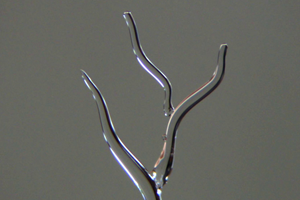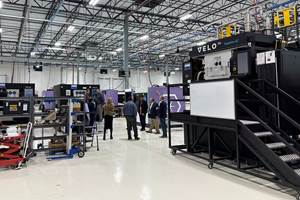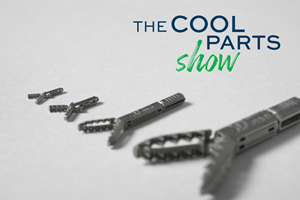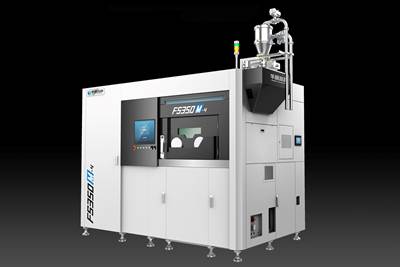Materialise Develops 3D Printing Software for Medical Quality Management, Compliance
Materialise’s Mimics Flow Case Management software supports quality management and compliance for hospital 3D printing labs by enabling hospitals to track 3D printing and planning workflow to ensure each step is quality-compliant.
The Mimics Flow Case Management software enables 3D labs and clinicians to better organize, track and collaborate on cases. Photo Credit: Materialise
Materialise’s Mimics Flow Case Management is a software solution for hospital point-of-care 3D printing labs. The offering enables hospitals to enforce quality management within 3D workflows, digitally streamline point-of-care and 3D printing processes, and empower collaboration between clinicians, 3D lab leaders, and engineers.
The company says personalized patient care is increasingly becoming a reality, driven by technological advancements such as 3D printing and advanced visualization techniques. Increased accessibility of 3D printing in the medical field has led to significant growth of applications using the technologies. However, hospitals are missing the right tools to scale their 3D printing and planning activities, ensure quality compliance and enable better patient care.
“Point-of-care 3D labs are becoming more common as hospitals see the value in on-site 3D printing and advanced visualization for personalized patient care,” says Brigitte de Vet-Veithen, vice president of Materialise Medical. “With the new Mimics Flow solution, Materialise offers 3D labs and the clinicians who rely on them a complete case management system to better organize, track and collaborate on cases.”
Mimics Flow integrates with Mimics Innovation Suite 26, the medical image-based engineering toolbox, to provide a single workspace for all stakeholders, including 3D lab engineers and leaders, and clinicians requesting 3D services. With this single workspace, administrators can view all operational work, while clinicians and engineers have individual user profiles with their access interface and personalized rights. This streamlined process and access help scale operations, organize and manage files, and improve efficiency in point-of-care 3D printing activities.
Quality management features in Mimics Flow Case Management enable hospitals to implement checks and controls within their workflow, ensuring each case meets quality requirements. Users can record quality metrics and leverage the data to measure, analyze and optimize their 3D planning and printing processes. In addition, automatically generated case history reports and action logs help ensure seamless compliance and promote high-quality delivery.
The user-friendly 3D Viewer accelerates the approval process and increases clinician engagement by enabling both the 3D lab and clinician to provide feedback and updates on the status of each case. In addition to improving collaboration among hospital stakeholders, Mimics Flow Case Management can be used as a patient and peer communication tool. Using the 3D viewer during consultations enables clinicians to share or open a view of their 3D models from any device.
- Learn about the CO-AM System Materialise developed for holistic process quality. QPC users can collect and monitor data during the different stages of product development —including research, validation and production — giving additive manufacturers a holistic view of their process and its interrelationships.
- Read about the opening of Materialise’s medical 3D printing facility. At the new facility in Plymouth, Michigan, Materialise specializes in the 3D printing of personalized titanium cranio-maxillofacial (CMF) implants for more patient-specific care.
Related Content
Ice 3D Printing of Sacrificial Structures as Small as Blood Vessels
Using water for sacrificial tooling, Carnegie Mellon researchers have created a microscale method for 3D printing intricate structures small enough to create vasculature in artificial tissue. The biomedical research potentially has implications for other microscale and microfluidics applications.
Read MoreZeda AM Production Plant in Ohio Now Open — Thoughts on the New Facility
73,000-square-foot metal powder bed fusion plant includes extensive machining capability plus separate operational models for serving medical versus other businesses.
Read MoreActivArmor Casts and Splints Are Shifting to Point-of-Care 3D Printing
ActivArmor offers individualized, 3D printed casts and splints for various diagnoses. The company is in the process of shifting to point-of-care printing and aims to promote positive healing outcomes and improved hygienics with customized support devices.
Read MoreMicro Robot Gripper 3D Printed All at Once, No Assembly Required: The Cool Parts Show #59
Fine control over laser powder bed fusion achieves precise spacing between adjoining moving surfaces. The Cool Parts Show looks at micro 3D printing of metal for moving components made in one piece.
Read MoreRead Next
Alquist 3D Looks Toward a Carbon-Sequestering Future with 3D Printed Infrastructure
The Colorado startup aims to reduce the carbon footprint of new buildings, homes and city infrastructure with robotic 3D printing and a specialized geopolymer material.
Read More3D Printed Polymer EOAT Increases Safety of Cobots
Contract manufacturer Anubis 3D applies polymer 3D printing processes to manufacture cobot tooling that is lightweight, smooth and safer for human interaction.
Read MoreBike Manufacturer Uses Additive Manufacturing to Create Lighter, More Complex, Customized Parts
Titanium bike frame manufacturer Hanglun Technology mixes precision casting with 3D printing to create bikes that offer increased speed and reduced turbulence during long-distance rides, offering a smoother, faster and more efficient cycling experience.
Read More





















